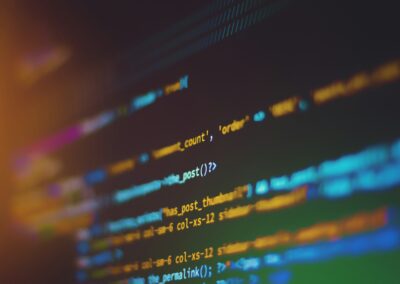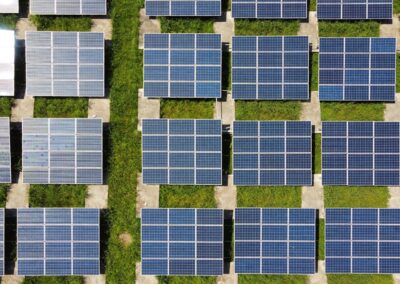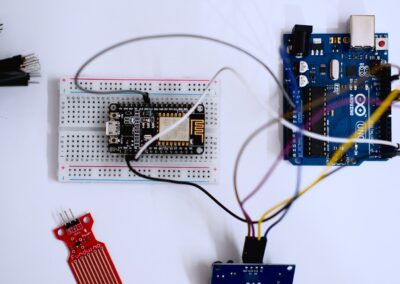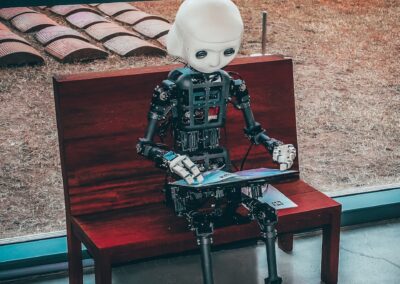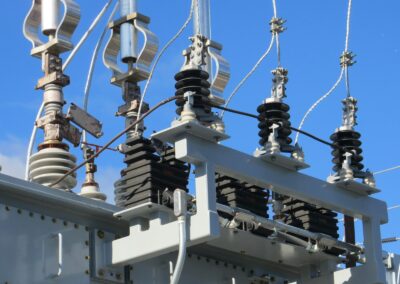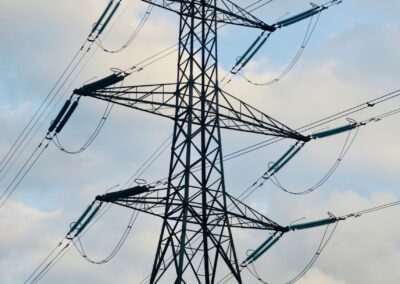Revolutionizing Energy Audits with Digital Twin Technology
Introduction to Digital Twins in Energy Audits
In recent years, the concept of digital twins in energy audits has gained significant traction, offering a revolutionary approach to enhancing energy efficiency and performance assessments. Digital twins are virtual replicas of physical assets, systems, or processes that provide real-time data and predictive insights. This innovative technology is transforming the way businesses and governments conduct energy audits, enabling more accurate, efficient, and cost-effective evaluations.
In the context of energy audits, digital twins offer a dynamic and interactive method to monitor and analyze energy consumption. Traditional energy audits often rely on periodic data collection and analysis, which can be time-consuming and prone to inaccuracies. Digital twins, on the other hand, continuously collect data from various sensors and IoT devices, providing a comprehensive and up-to-date view of energy usage. This real-time monitoring allows for immediate identification of inefficiencies and potential issues, facilitating prompt corrective actions.
Saudi Arabia and the UAE, both leaders in embracing modern technology, have recognized the potential of digital twins in their energy management strategies. Riyadh and Dubai are integrating digital twin technology into their energy audits to enhance the sustainability and efficiency of their urban infrastructure. By leveraging digital twins, these cities are setting new benchmarks in energy management and performance optimization.
Case Studies: Implementing Digital Twins for Energy Efficiency
Several case studies highlight the successful implementation of digital twins in energy audits and performance assessments. In Riyadh, a major commercial complex utilized digital twin technology to monitor its energy consumption. The digital twin integrated data from HVAC systems, lighting, and other energy-consuming devices, providing a detailed and real-time overview of energy usage. This enabled the facility managers to identify energy wastage and optimize settings, resulting in a 20% reduction in energy consumption and significant cost savings.
Dubai has also been at the forefront of adopting digital twins for energy audits. A notable example is the implementation of digital twins in a large residential development. By creating virtual replicas of the buildings and integrating data from smart meters and environmental sensors, the digital twin system provided valuable insights into energy performance. This allowed the developers to optimize energy usage, improve occupant comfort, and reduce the overall carbon footprint of the development.
These case studies demonstrate the tangible benefits of using digital twins for energy audits. By offering a detailed and dynamic view of energy consumption, digital twins enable more informed decision-making and proactive energy management. As a result, businesses and governments can achieve greater energy efficiency, cost savings, and sustainability.
Future Directions and Challenges
Despite the significant advantages of digital twins in energy audits, there are challenges that need to be addressed for widespread adoption. One major challenge is the integration of digital twin technology with existing energy management systems. This requires substantial investment in technology infrastructure and training for operational personnel. However, the long-term benefits of improved energy efficiency and cost savings justify the initial investment.
Another challenge is ensuring the accuracy and reliability of the data used by digital twins. Accurate data is crucial for making informed decisions. Energy managers must implement robust data validation and verification processes to ensure the integrity of the information used by these technologies. Additionally, cybersecurity concerns must be addressed to protect sensitive operational data from potential threats.
Looking ahead, the future of digital twins in energy audits is promising. Advances in artificial intelligence and machine learning are expected to enhance the predictive capabilities of these technologies, enabling even more precise and proactive energy management strategies. The integration of IoT devices and sensors will further improve data collection and analysis, providing a more comprehensive view of energy systems. As the technology matures, it will become an indispensable tool for energy managers seeking to optimize the operation and efficiency of renewable energy systems.
Conclusion: Transforming Energy Management with Digital Twins
In conclusion, the integration of digital twins in energy audits marks a significant advancement in energy management, offering substantial benefits in terms of efficiency, reliability, and decision-making. By leveraging real-time data and predictive analytics, these technologies enable proactive energy management strategies that enhance the performance and outcomes of energy systems. The success stories from Saudi Arabia and the UAE highlight the transformative impact of this technology on energy management.
Despite the challenges associated with integrating and managing digital twins, the long-term benefits make them a worthwhile investment for energy managers and stakeholders. As technology continues to evolve, these tools will play an increasingly important role in energy management, driving improvements in efficiency, cost-effectiveness, and sustainability. By embracing this innovative technology, energy managers can ensure their operations are optimized for maximum efficiency and reliability.
The future of energy management lies in the adoption of digital twins, and forward-thinking regions like Saudi Arabia and the UAE are leading the way. By continuing to invest in and develop this technology, these regions are setting new standards for operational excellence and sustainability in energy management.
—
#DigitalTwins #EnergyAudits #EnergyEfficiency #PerformanceAssessments #SaudiArabia #UAE #Riyadh #Dubai #ArtificialIntelligence #ModernTechnology #BusinessSuccess #Leadership #ExecutiveCoaching







